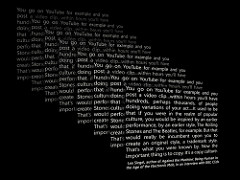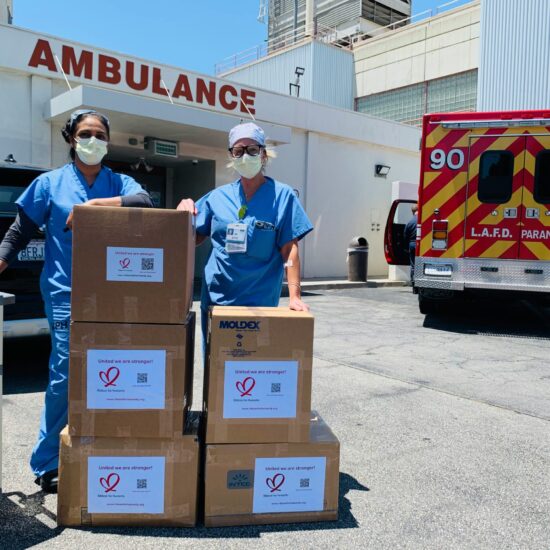Although I’m not a nurse, for 16 years I have been editing the professional writings of nurses. Also, for the past several years I have been teaching writing to nursing students and guiding writing workshops for nurses. And I have been confounded by a problem that seems only to be getting worse, perhaps because we’re getting better at detecting it: plagiarism.
I have edited the “work” of nearly every type of nurse plagiarist. There’s the patchwork quilter, who copies-and-pastes text from a variety of cited and uncited sources. There’s the self-plagiarist, who regurgitates his own previously published materials, regardless of whether he owns copyright. There’s the poor paraphraser, who lifts others’ words and then rearranges and changes a few of them, telling herself that’s good enough. And there’s the wholesale thief, who submits entire sections of another’s work as her own. (That last one is rare, but I have seen it.)
The problem seems pervasive and intractable in both academia and biomedical publishing. And as frustrated as I have been over the years, there’s a question I haven’t heard asked often enough: is there a link between academic dishonesty in nursing and unethical nursing practice? Two recent nurse-authored literature reviews show that there may well be.
Joyce A. Johnson explores the question in the September–October 2013 issue of the Journal for Nurses in Professional Development (subscription required). Many researchers have shown associations, she writes, like one study that found “individuals who cheat to get good grades are more likely to follow unethical paths in their careers.” And although she reported no studies conducted on nurses, Johnson says that based on these findings all nurses should be aware that cheating in nursing school may evolve in the clinical setting into “falsification of records including charting, stealing drugs, not doing the work required, and jeopardizing the patient.”
Rebekah D. LaDuke reports the findings of her more exhaustive literature review in the November–December 2013 issue of the Journal of Professional Nursing (abstract here). LaDuke tackles the ethics issue head-on. If a nurse plagiarizes or otherwise acts unethically in academia, she asks, how can he or she be expected to “learn to think with a moral compass” in the clinical arena? Many of the studies showing an association between academic and professional dishonesty were conducted in business and engineering students, but LaDuke writes of one study from the 1980s that found that nursing students who were dishonest in the classroom also reported “stealing patients’ medications, lying on patients’ charts, and coming to clinical under the influence of a mind-altering substance.”
These reviews emphasize what I’ve long felt: that we can’t afford to dismiss nurses’ plagiarism as inconsequential, even if it is very often unintentional. I believe most plagiarism is not done maliciously, a conclusion it took me a long time to reach. I began to see it from the writer’s point of view when one of my students, who got caught copying for an assignment from a rather badly written blog, explained herself with a mixture of embarrassment and relief: “Oh, it’s my grammar.” Many nursing students pursuing advanced degrees have been out of academia for a long time; some have the added challenges of not being native English speakers. “Publish or perish” places an enormous pressure on academic nurses. And students, clinicians, and faculty alike are crazy-busy. They work full time, have families, go to classes, chair committees, all the while trying to write papers.
Both literature reviews looked at these and other reasons for cheating. “Everyone does it” is on Johnson’s list of reasons, and I hate to think it’s true.
Yet even as we seek to understand the causes we cannot be apologists for plagiarism.
Just a few weeks ago Gallup reported the results of its annual honesty and ethics in the professions poll, and as usual nurses top the list: 82% of respondents rated nurses high or very high on ethical standards, 12 percentage points above the next two on the list, pharmacists and grade-school teachers.
I encourage all nursing faculty and all editors of nursing publications to make sure the public’s trust in nurses is merited by requiring the use of plagiarism-detection software. To have a hand in guiding a nurse in finding her subject and writing originally about her life and work is not more time consuming than dealing with plagiarism. And it could have real-world consequences for nurses. For their patients, too.









josephineensign / January 7, 2014
Hi Joy,
Thanks for writing about this issue. I’ve wrestled with it as well and not just with our ELL students. I’ve tempered my own views on plagiarism by working with our university’s head of our writing program in Arts and Sciences. Some of our faculty still prefer to use anti-plagiarism checking tools. Take a look at John Webster’s thought-provoking essay here:
http://faculty.washington.edu/cicero/plagiarism.htm.
/
Joy Jacobson / January 7, 2014
Josephine, thanks for the link to this essay. I appreciate one of his points in particular: “Make sure your students actually have the skills they will need to complete your assignment successfully and on their own.” i worry that faculty don’t always possess these skills themselves, or if they do that they don’t take the time to build in teaching writing-as-process. Thanks again.
Joy
/
Barbara Glickstein / January 8, 2014
I read this post early this morning and find myself reflecting back on it throughout the day. This is the thought that keeps echoing in my mind – in our society we silence women, nurses are mostly female, nurses struggle with being invisible in their role and often aren’t asked to be at the table where important decisions are being made (ok, it’s gotten slightly better). How does this factor in to nurse plagiarism? When nurses/women are silenced do they justify copying and publishing someone else’s thoughts as their own? Is that the safe thing to do?
/
Pingback: Weekend reads: Waste in research, a praise-worthy swift correction in NEJM, and more | Retraction Watch / January 11, 2014
/
Michael Wise / January 12, 2014
Thanks for an interesting posting. I’ve been involved in plagiarism detection, on and off, since the early 1990’s. In my case, I was looking copying of computer programming assignments. IN other words, plagiarism has probably always existed and in all disciplines where work is submitted for large classes. Large classes probably exacerbate the problem. What I like about the posting is that it suggests that plagiarism is part of a set of poor behaviours that need to be corrected as they can be indicators of future problems. An analogy, if I many. Many people in western societies drive. Assuming you do drive, can you put your hand on your heart and say that, pushed for time, for example, you’ve never gone above the speed limit? Mostly, there are no consequences; make it a habit and there could be severe consequences.
/